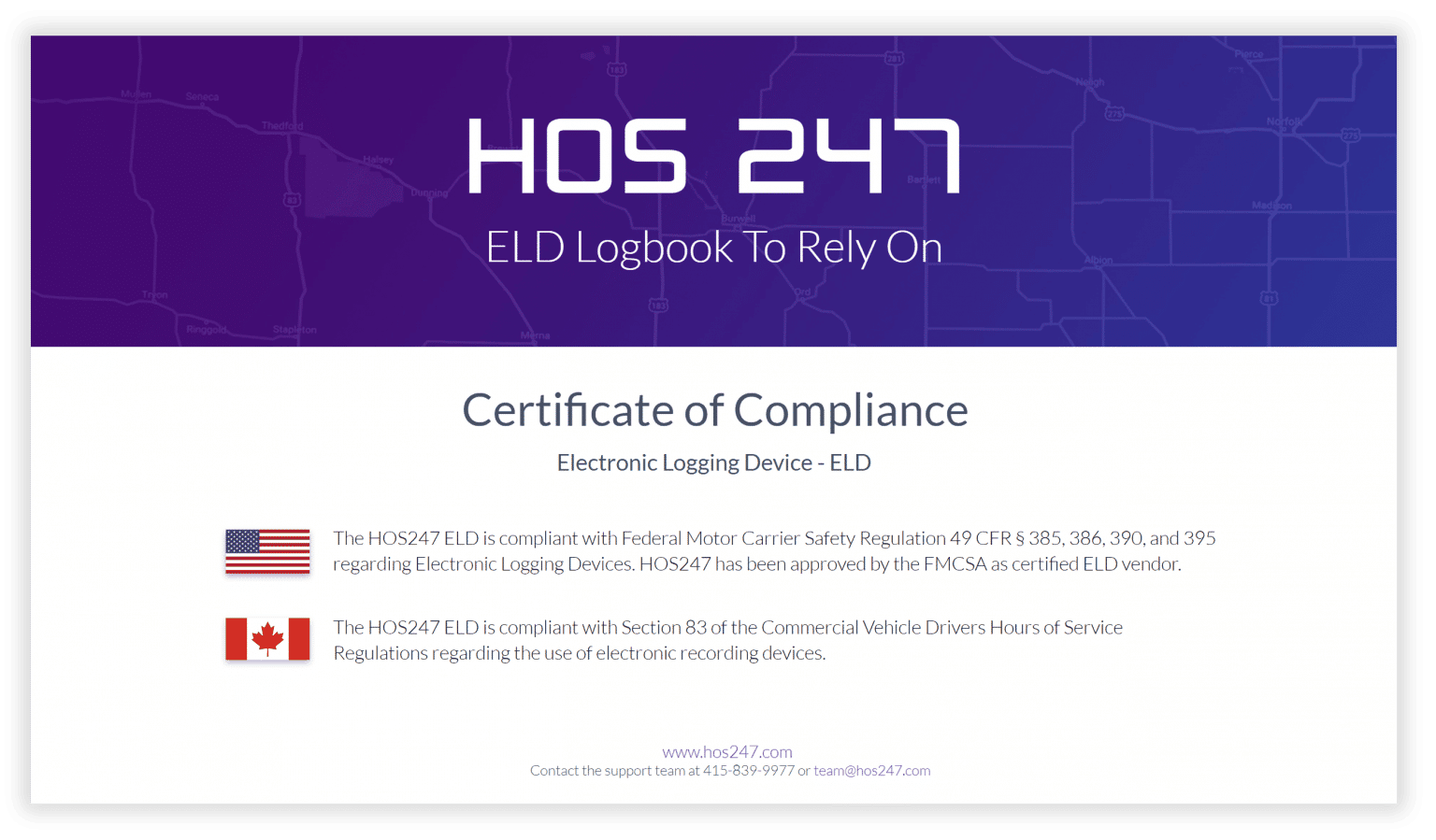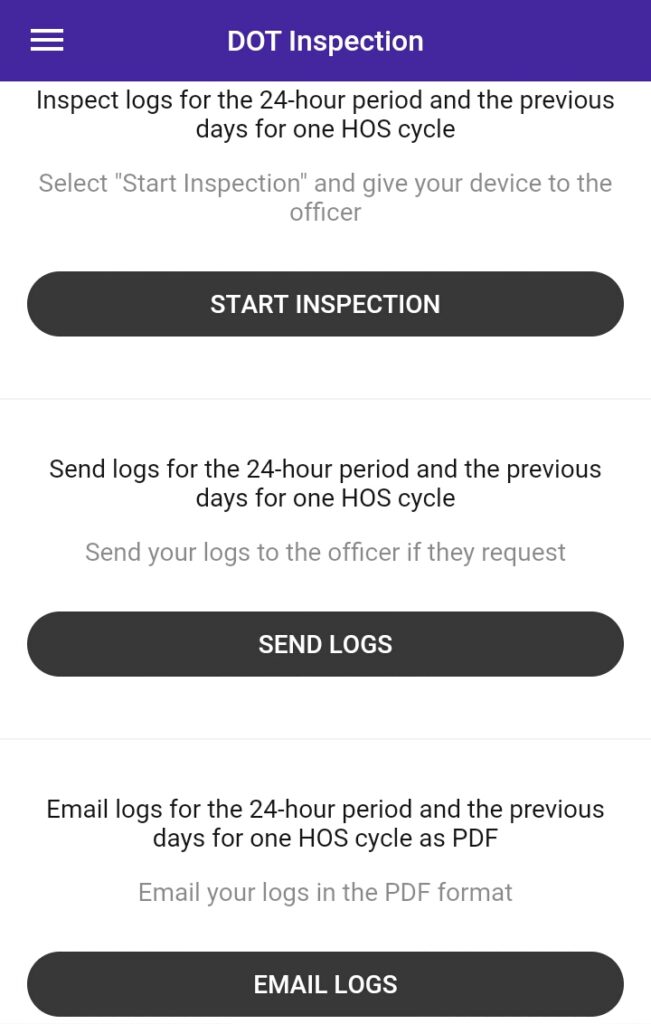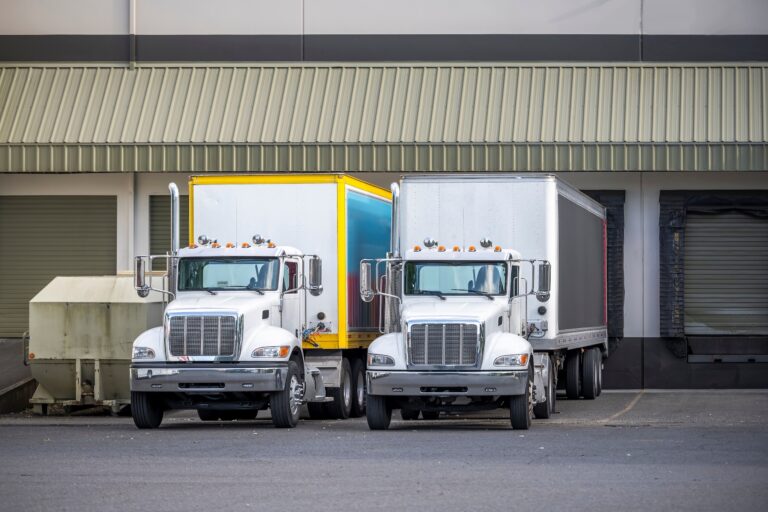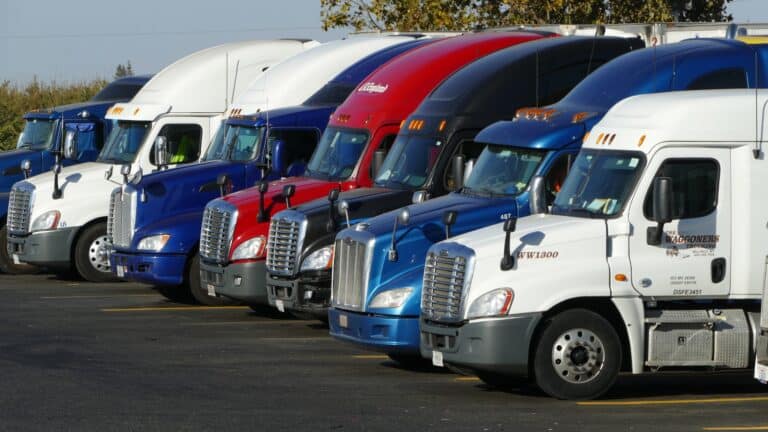If you are a commercial vehicle driver, your elog solution is a tool that must be used whenever you are on the road. Your operations’ safety and compliance will depend on the quality of your ELD system, so it must be chosen carefully. A vital part of that system will be the drivers daily log book app. Most providers offer bring your own device (BYOD) solutions, meaning drivers can use their own smartphone or tablet to run the elog app. In this article, you will find information on app compliance, log keeping, and penalties to help you keep your business on track.
Do you have any questions? Talk to ELD Advisor: 650-405-3372 or Request Callback
Are Daily Log Book Apps Compliant with the Elog Mandate?
Even though elog mobile apps can be downloaded from app distribution platforms, they are not enough to be compliant. To meet DOT requirements, a tamper-resistant device must be connected to the engine to directly record HOS data. Once the device is connected and starts recording information, it sends it to the drivers’ mobile device via the app. Truckers need their vehicle daily log book device to be FMCSA-approved, which means the app will be compliant as part of that system, but not on its own.

HOS247 Is a Top-Rated Drivers Daily Log Book App Provider
Our purpose at HOS247 is to offer a vehicle daily log book with top-rated customer support to help our clients run their trucking operations more efficiently. We assume the role of a strategic partner to the client and assist them in growing their business.
The quality of HOS247 services is shown consistently in our user ratings. Our clients appreciate our easy-to-use drivers daily log book app, and many other benefits, such as:
- Reliable and easy-to-install hardware. Our device is durable and has been designed for easy and quick installation. Just connect to the device using Bluetooth and the system will be set and ready to operate.
- Driver-friendly logbook software. HOS247 is easy to use and quick to learn. The logbook operates just as well on Android and iOS devices to better suit the preference of the driver.
- Top-rated support. Our technical assistance team is ready to assist customers Monday through Sunday. Our staff is well trained and fluent in English, Spanish, Russian, and Polish. Our callback policy ensures the issue gets resolved as soon as possible.
- Trial period. We offer a tryout period of two weeks for truckers to get familiar with the logbook. You will receive a full refund if you decide to return it within that time. No questions asked, no hassle, no strings attached.
- No contract needed. Pay on a monthly or annual basis. Monthly plans can be scaled up or down as you see fit.
- Extra features. Our electronic logbook can be enhanced with features of real-time GPS tracking, vehicle diagnostics with fault code detection, IFTA mileage calculations and more.
Can ELD App Records Be Edited?
The vehicle driver log book will record all the time that a vehicle is in motion as driving time. This data cannot be changed to non-driving time. That said, occasionally, something needs to be cleared up. There are two kinds of changes that can be made to the log:
- Edit. This refers to any and all changes made upon the information in an ELD record.
- Annotation. This refers to a text addition related to a record, update or edit done by a driver or an authorized person. Edits must all have an annotation to justify them.
If there is an error, someone with clearance (driver or staff) can make these changes. Original records will remain after edits and annotations are made, and they will be under the drivers’ responsibility. Drivers must:
- Review the changes made.
- Make sure they are accurate and justified.
- Sign off any edits done by other staff.
- Resubmit the corresponding electronic logs.
ELD-Related Fines and CSA Scores

There are 22 violations related to the use of logging devices and their drivers daily log book app that affect a carriers’ CSA score. Here are some of the most common:
- Failing to use the correct method to record HOS. Up to 7 points.
- Incomplete logs or errors. These can cost as much as 5 points. These include failing to document a device malfunction or not setting up the screen to be visible from outside the vehicle.
- Lesser violations. These add up one point: not having the ELD manual available, not certifying logs, missing information that needs to be input manually such as shipping documents or location descriptions.
Fees for recordkeeping-related violations are around $1,307 on average in a single day. The highest of these penalties is $13,072 for knowingly falsifying electronic logging device records. Some of these violations will also get drivers put out of service. These include falsifying logs, not using an elog while being outside of the exemption categories, or using unauthorized logbooks.
As seen above, fines can be extremely expensive. A reliable device with user-friendly logbook software can go a long way in making sure drivers keep their records properly to save time and money.
Do you have any questions? Talk to ELD Advisor: 650-405-3372 or Request Callback
Differences Between Paper Logs and Electronic Logs
The main difference between paper and electronic logs is that electronic records are automatic and in real time, while paper records need to be filled manually by the driver. Elogs connect to the engine and record the vehicle’s activity automatically, relieving drivers of this part of the job and preventing human error. They can then access the information via a drivers daily log book app. On the other hand, paper logs have to be filled out by hand on a spreadsheet to account for the day’s work. It is a straightforward task, but it takes additional time and effort for truckers to keep records accurate and well organized.

Currently, most commercial drivers use electronic logs in accordance with the elog mandate. However, paper records are still used by drivers included in the following exemption categories:
- Short-haul exemption. Drivers who operate within a specific distance from their work location (150 air-mile radius).
- 8 day/month exemption. Drivers who keep RODS for up to eight days during a 30-day period.
- Drive-away-tow-away operations. When the vehicle being driven is the actual commodity.
- Manufacturing date. Vehicles with engines manufactured before the year 2000.
Paper records are also necessary in case of an ELD malfunction. The FMCSA states that the driver must notify the motor carrier and keep paper logs until their device is fixed (up to 8 days).

I’ve co-founded, built and managed several transportation-related businesses. Now, I’m a founder and CEO of HOS247 – an AI Transportation Platform for trucking companies, freight brokers and other logistics operations. We are transitioning old-style operations to technology-advanced logistics entities and help them to grow their businesses. ELDs (electronic logging devices), fleet tracking and management 2.0 combined with AI-powered dispatch tools.










GPS software has become a vital tool for trucking operations in Canada. The advantages it offers carriers practically make it a must-have to be competitive in the industry. HOS247 understands the need for reliable GPS truck tracking solutions, so we

Your ELD should have everything needed to keep your trucking business compliant with federal regulations come January 1, 2023. However, choosing the right option can be challenging. If you are looking for an Android logbook app for your truck or

HOS247 is a top-rated, highly trusted company that creates solutions to help drivers meet Federal Motor Carrier Safety Administration (FMCSA) compliance. In addition to offering the best ELD solutions for small fleets, HOS247 offers dedicated support to help keep fleets